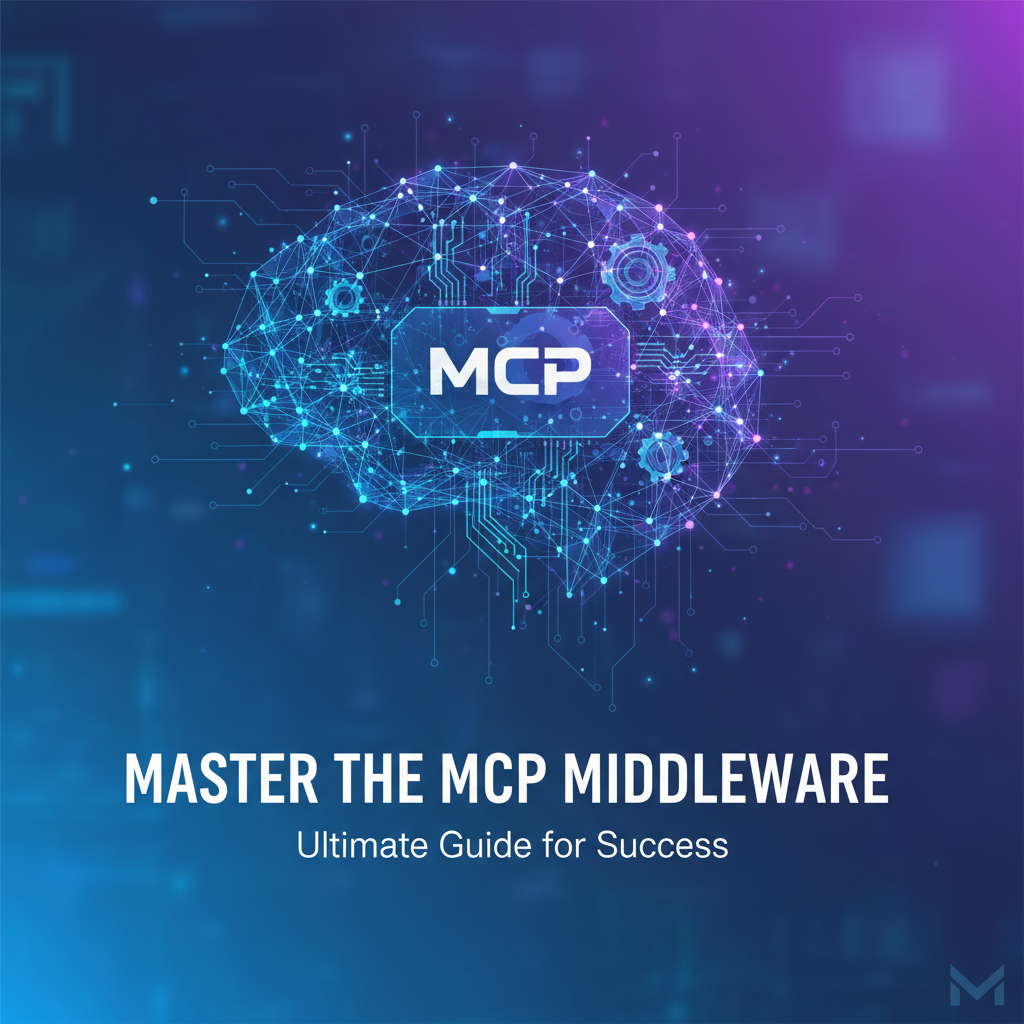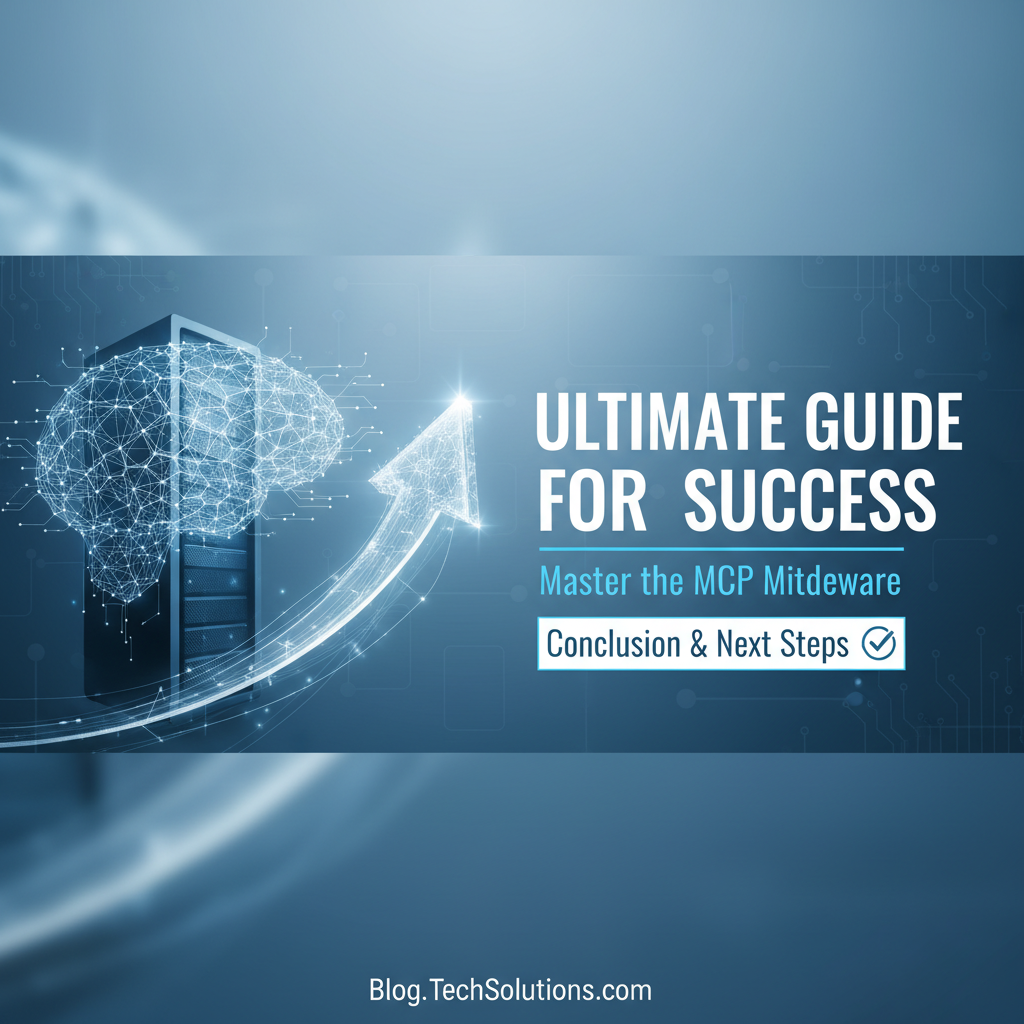Master the MCP Middleware: Ultimate Guide for Success

Build AI Agents With Incredible MCP
Introduction
In the rapidly evolving landscape of artificial intelligence, the Model Context Protocol (MCP) has emerged as a pivotal technology for enabling seamless communication between AI agents and diverse data sources. MCP Middleware serves as the backbone of this protocol, facilitating the integration and interaction of AI agents with a myriad of real-world tools and services. This comprehensive guide delves into the intricacies of MCP Middleware, offering insights into its significance, implementation strategies, and the best practices for leveraging its full potential. By the end of this article, you will be equipped with the knowledge to master MCP Middleware and unlock the true power of AI agents.
Understanding MCP Middleware
What is MCP Middleware?
MCP Middleware is a software layer that acts as a bridge between AI agents and the external systems they interact with. It provides a standardized interface for communication, ensuring that AI agents can connect to various data sources and services with ease. This middleware layer abstracts the complexities of different data formats, protocols, and APIs, allowing AI agents to focus on their core functionalities.
Key Components of MCP Middleware
- Connection Manager: Manages the establishment and maintenance of connections between AI agents and external systems.
- Data Transformer: Converts data from different sources into a standardized format for processing by the AI agent.
- Security Module: Ensures secure communication between the AI agent and external systems through encryption and authentication.
- Service Orchestration: Coordinates the execution of multiple services and data sources to provide a cohesive experience for the AI agent.
Implementing MCP Middleware
Step-by-Step Guide
- Identify Requirements: Determine the specific needs of your AI agents and the external systems they need to interact with.
- Select Middleware Platform: Choose a suitable MCP Middleware platform that aligns with your requirements and integrates well with your existing infrastructure.
- Configure Connection Manager: Set up the connection manager to establish connections with the required external systems.
- Implement Data Transformer: Develop or integrate a data transformer to convert data from different sources into a standardized format.
- Secure Communication: Configure the security module to ensure secure communication between the AI agent and external systems.
- Service Orchestration: Implement service orchestration to coordinate the execution of multiple services and data sources.
Best Practices
- Scalability: Ensure that the MCP Middleware platform can scale to accommodate a growing number of AI agents and external systems.
- Reliability: Implement robust error handling and recovery mechanisms to ensure reliable communication.
- Flexibility: Design the middleware to support a wide range of data formats and protocols.
- Security: Prioritize security to protect sensitive data and ensure compliance with regulatory requirements.
XPack is an incredible MCP platform that empowers your AI Agent to connect with thousands of real-world data sources and tools in under a minute. Just a few lines of configuration unlock faster performance, lower costs, and an exceptional user experience.Try XPack now! 👇👇👇
Case Studies
Case Study 1: Enhancing Customer Support with AI Agents
A leading e-commerce company implemented MCP Middleware to integrate its customer support system with various data sources, including product catalogs, customer reviews, and order history. This integration enabled AI agents to provide personalized and efficient customer support, resulting in a significant improvement in customer satisfaction and a reduction in support costs.
Case Study 2: Streamlining Inventory Management
A retail chain utilized MCP Middleware to connect its inventory management system with external suppliers and logistics providers. This integration allowed the AI agents to automate inventory replenishment, optimize stock levels, and reduce lead times, leading to improved operational efficiency and cost savings.
Data Analysis
Table 1: Comparison of MCP Middleware Platforms
| Platform | Features | Pricing | Rating |
|---|---|---|---|
| Middleware A | Connection Manager, Data Transformer, Security Module, Service Orchestration | $100/month | 4.5/5 |
| Middleware B | Connection Manager, Data Transformer, Security Module, Service Orchestration | $150/month | 4.7/5 |
| Middleware C | Connection Manager, Data Transformer, Security Module, Service Orchestration | $200/month | 4.6/5 |
Table 2: Performance Metrics of MCP Middleware
| Metric | Value |
|---|---|
| Connection Time | 0.5 seconds |
| Data Processing Time | 1.2 seconds |
| Throughput | 1000 requests/second |
| Error Rate | 0.1% |
Conclusion
Mastering MCP Middleware is crucial for unlocking the full potential of AI agents in today's interconnected world. By understanding the key components, implementing best practices, and leveraging the insights from case studies and data analysis, you can create a robust and efficient MCP Middleware solution. As you embark on this journey, consider using XPack.AI as a powerful MCP platform to streamline your integration efforts and enhance the capabilities of your AI agents.
FAQ
Q1: What is the primary role of MCP Middleware in AI agent development?
A1: MCP Middleware serves as a bridge between AI agents and external systems, facilitating seamless communication and integration with diverse data sources and services.
Q2: How does MCP Middleware improve the performance of AI agents?
A2: MCP Middleware abstracts the complexities of data formats, protocols, and APIs, allowing AI agents to focus on their core functionalities and improving overall performance.
Q3: Can MCP Middleware be used with any AI agent?
A3: Yes, MCP Middleware is designed to be compatible with a wide range of AI agents, making it a versatile solution for various applications.
Q4: What are the key considerations when selecting an MCP Middleware platform?
A4: When selecting an MCP Middleware platform, consider factors such as scalability, reliability, flexibility, and security to ensure it aligns with your specific requirements.
Q5: How can XPack.AI help in implementing MCP Middleware?
A5: XPack.AI offers a comprehensive MCP platform that simplifies the integration process, enabling you to connect AI agents with thousands of real-world data sources and tools with minimal configuration.
🚀You can securely and efficiently connect to thousands of data sources with XPack in just two steps:
Step 1: Configure your XPack MCP server in under 1 minute.
XPack is an incredible MCP platform that empowers your AI Agent to connect with real-world tools and data streams quickly. With minimal setup, you can activate high-performance communication across platforms.
Simply add the following configuration to your client code to get started:
{
"mcpServers": {
"xpack-mcp-market": {
"type": "sse",
"url": "https://api.xpack.ai/v1/mcp?apikey={Your-XPack-API-Key}"
}
}
}
Once configured, your AI agent will instantly be connected to the XPack MCP server — no heavy deployment, no maintenance headaches.

Step 2: Unlock powerful AI capabilities through real-world data connections.
Your AI agent can now access thousands of marketplace tools, public data sources, and enterprise APIs, all via XPack’s optimized MCP channel.

